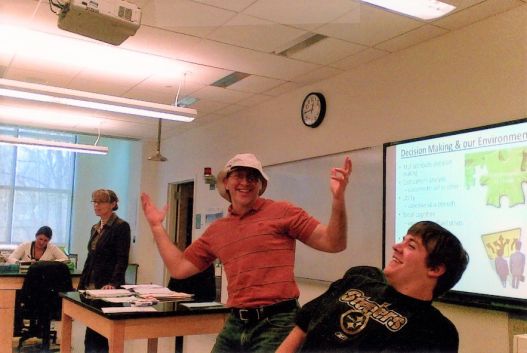
On the evening of May 21, 2016, Dr. David Dunbar was fatally struck by a car while crossing Lancaster Avenue in Wayne, Pa. This occurred just hours after being promoted to full professor. Now, almost one year after his untimely death, the love for Cabrini’s cherished biology professor still resonates throughout the campus.
A memorial for the late professor, set to be dedicated on Tuesday, May 16, from 11-11:30 a.m., was something that the Cabrini faculty and staff knew they wanted to be built. “After Dr. Dunbar’s death, we wanted to memorialize his presence at Cabrini,” Dr. Jeff Gingerich, provost and vice-president for academic affairs, said. “A lot of people donated to make this happen because he was so loved and appreciated.”
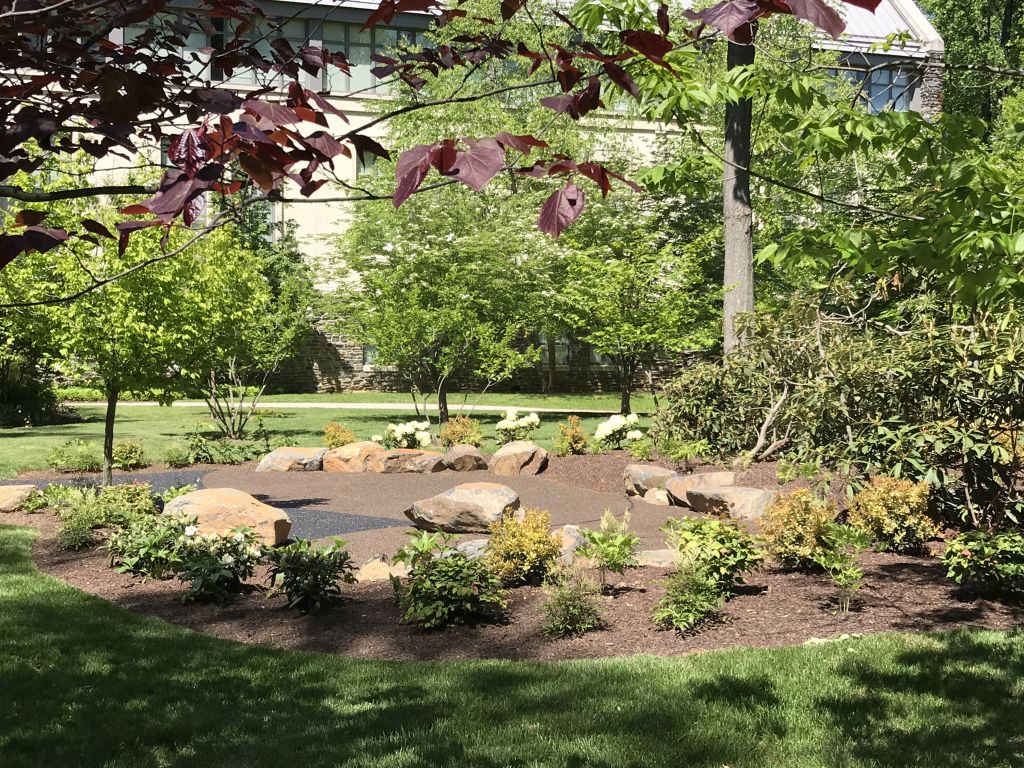
Dunbar had worked at Cabrini for 15 years. He was very enthusiastic about water conservation, fishing and coffee. “He loved to fly-fish and tell everyone about his experiences fishing,” Gingerich said.
“He loved coffee,” Dr. Melinda Harrison, associate professor of chemistry, added. “He would constantly have a coffee stain on his shirt or on his tie or on his pants. He spilled coffee in so many places— not only on his clothing but also on his desk, on his laptop, and just always constantly had a cup of coffee.”
Harrison had a particularly close relationship with Dunbar. When she was hired in 2008, Dunbar reached out to her prior to her first day. “He reached out to me because he wasn’t in my interview, but he heard of me and my expertise and wanted to get me involved in a project,” Harrison said. “He contacted me before I even started at Cabrini and reached out to me with his enthusiasm with some projects he wanted to get me involved in.”
Ever since Dunbar and Harrison worked very closely with one another in the science department.
Another faculty member Dunbar was particularly close with was Dr. Melissa Terlecki, associate professor and chair of the psychology department. “When I first came to Cabrini, Dave, I’ve always called him Dave, took me under his wing to help me become acclimated at Cabrini and help figure out my research niche here,” Terlecki said. “He and I decided to collaborate on kind of an environmental-psychology, not just course, but we also got involved in the Crabby Creek restoration project, which has to do with watersheds in the Tredyffrin Township.”
While Terlecki and Dunbar co-taught this watershed ecology course for many cycles, Terlecki eventually was unable to teach this class due to department needs. While neither Terlecki nor Dunbar teaches this course, it is still offered as BIO 211, watershed ecology.
Remembering
Every person who was fortunate enough to have an interaction with Dunbar can agree his passion and motivation made him a unique gem among the Cabrini community.
“I can say that he brought such an energy and enthusiasm to the class that really just set the tone for the semester,” Harrison said. “He just had a way that captured [the energy] that was so unique and it really could be multiplied and felt among all the students. That’s something that really truly will be missed here in the science department.”
Harrison and Dunbar spent a lot of time together through a grant received from HHMI. Harrison shared her memory from the first time she and Dunbar traveled to Maryland, the headquarters for HHMI. They decided to take the Amtrak train, seeing as both were not overly confident in directions. They both thought they had planned well enough because they knew they would have to get off the train and go directly to a meeting. However, they did not plan as well as they thought.
“We thought we knew which stop we wanted to get off on and we misjudged it,” Harrison said. “We got off too early, but Dr. Dunbar is like, ‘We can just walk,’ and I go, ‘Okay!’ We thought it was just a matter of a few blocks. Here, it was like two miles.”
Harrison went on saying the two continued walking in DC traffic, wearing suits and high heels, for Harrison, carrying all of their suitcases. Harrison remembers Dunbar grabbing all of her bags so she would not have to struggle as much.
“I can remember many times that we were traveling to a conference or to some type of HHMI-related activity and we would get lost,” Harrison said. “One time we almost ran out of gas because [Dunbar] misjudged how empty he could go with his gas tank.”
Terlecki and Dunbar had spent a lot of time together through their work with Crabby Creek, interdisciplinary community-based research, SEPCHE conferences and the Special Olympics.
“He was like a big kid,” Terlecki said. “He had a big heart and was super smart, but super sensitive. He was so funny and so motivated. He really, to use his terminology, would love to get students jazzed up about things.”
Dunbar was not only motivated to help those students in the science department. According to Harrison, he was extremely passionate about getting everyone involved on campus.
“He would sometimes take on students in other disciplines. Not all the time, but sometimes if the project was appropriate enough,” Harrison said. “He would try to teach students in other disciplines about science or bring in another discipline to science. He wanted to get as many people involved as he could.”
Dunbar was also the inaugural founder of the Undergraduate Research and Arts Symposium. Harrison added that his passion for research emanated among the entire campus. Furthermore, Dunbar believed strongly in research of all disciplines, not just science.
While Gingerich did not work as closely with Dunbar as either Harrison or Terlecki, he still was close with Dunbar. “David was in incredible colleague and good friend,” Gingerich said. “What I will always remember about him, though, is how much his students loved and appreciated him because they knew how committed he was to their success and their learning.”
Memories
Memories are the best way to keep the deceased alive. With an abundance of memories to share, those close with Dunbar relive their favorite memory of their time spent together.
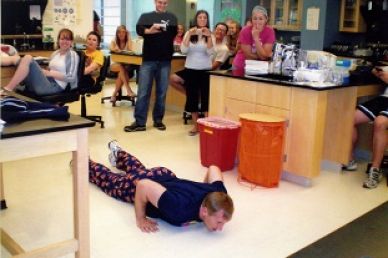 “There’s actually a YouTube clip of it somewhere, but it was a bet with one of the students,” Terlecki said. “Dave got into Superman pajamas and did pushups in the middles of our class. I forget how many he had to do, but we all counted and [the students] videotaped it. But that’s the kind of crazy stuff he would do.”
“There’s actually a YouTube clip of it somewhere, but it was a bet with one of the students,” Terlecki said. “Dave got into Superman pajamas and did pushups in the middles of our class. I forget how many he had to do, but we all counted and [the students] videotaped it. But that’s the kind of crazy stuff he would do.”
Harrison knew Dunbar on both a professional level as colleagues, but also a personal level.
“We lived very close to one another,” Harrison said. “Not all the time, but sometimes we would get together [with our families] and hang out.” Harrison remembers one time in particular the most. Shortly after adopting her dog, Harrison brought her over to Dunbar’s house so his children could meet her.
“My dog at the time, because she wasn’t a puppy she was an actual dog, was a little anxious being around not only me but also these kids she didn’t know,” Harrison said. “She got loose and ran away. I went to get her in this field by [Dunbar’s] home and I didn’t realize it was full of poison ivy.”
Harrison went on to say that the next day she broke out head-to-toe in a terrible rash. This, mind you, was sometime in August. Harrison said that she broke out so badly she had to wear long sleeves and pants. She remembers Dunbar always joking with her about that instance.
“He was always one of the most popular faculty members at Cabrini,” Gingerich said. “Dr. Dunbar was often referred to as a ‘rock star’ and he well deserved that title. He loved to inspire his students to learn and to succeed. He was creative, passionate, engaging and brilliant. Dr. Dunbar led many of the important initiatives on campus, always making sure that everyone’s voice was heard in the process and constantly making sure that we were keeping students as the priority.”
Moving Forward
Returning for the fall semester without Dunbar was easier for some than others.
“I was on maternity leave in the fall, so it was easier to deal with since I wasn’t here,” Terlecki said. “It was tough. The whole situation was tough. It was just so shocking and nobody could have prepared themselves for it.”
Terlecki went on to say that the hardest part about Dunbar’s death was that there was no preparation for it seeing as he was a young, healthy and vibrant individual.
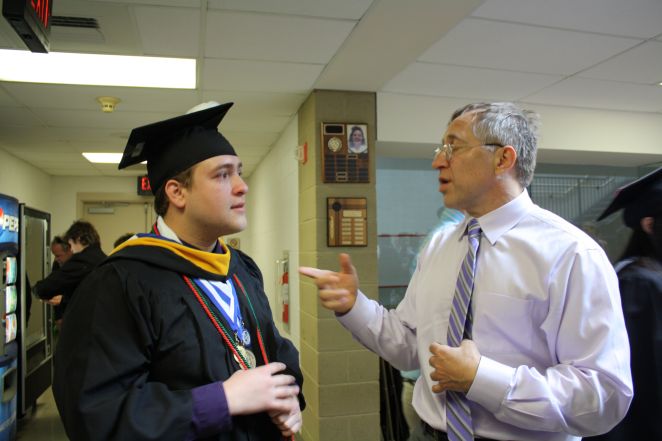 The science department arguably had the hardest time returning this semester. “Everyone in the science department greatly misses him,” Harrison said. “It was really hard [coming back without him]. He just brought this unique energy that I think that I couldn’t even put my finger on it, or if I wanted to bottle it and reproduce it I couldn’t because he had this energy that was unique.”
The science department arguably had the hardest time returning this semester. “Everyone in the science department greatly misses him,” Harrison said. “It was really hard [coming back without him]. He just brought this unique energy that I think that I couldn’t even put my finger on it, or if I wanted to bottle it and reproduce it I couldn’t because he had this energy that was unique.”
One of the most intriguing aspects of Dunbar’s uniqueness was his ability to captivate students’ interests across the board. “He could get somebody excited about something that he normally couldn’t have gotten that student excited about,” Harrison said. “He was able to get students across the board in different curriculums, in different areas excited about science, which I think is something that is so hard to find and such a unique trait that he brought.”
Harrison further spoke about how it is easy for students to get excited about the courses and research related to their major or minor, but Dunbar had a way to captivate practically every student on campus. His enthusiasm for science and research was almost contagious to students.
Memorialized
The decision to create a memorial for Dunbar was an extremely simple task. “We wanted to honor Dr. Dunbar with a memorial, so we started with his passions,” Brian Eury, chief of staff and vice-president of external relations, said. “His students, science and the environment were some of the attributes that stood out among many.”
One of the hardest decisions, when it came to this memorial, was deciding on the location.
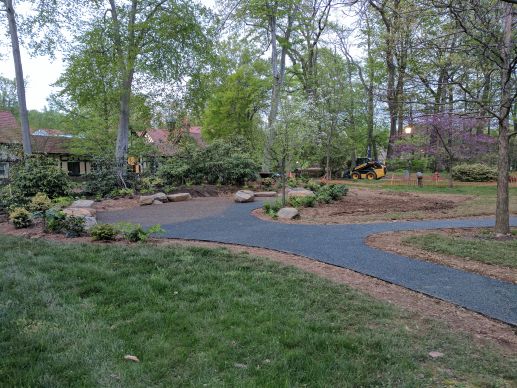
“We wanted to find a location and create a space that honored his commitment to the outdoors and to a sustainable environment,” Gingerish said. “We initially thought that we might create that space down the hill by Emmaus House, but when we realized that we could create the space in front of the Iadarola building, we felt it would be most appropriate to have it in front of the science building where everyone can see it more often and spend time there.”
Harrison particularly enjoys the location for the memorial. Seeing as Dunbar was an avid fisherman, he loved being able to escape from the daily stress life often threw at him. Fishing for him, according to Harrison, was his therapeutic escape. She sees this memorial benefiting students in a similar way that fishing benefited Dunbar.
“It’s a nice place to sit and reflect and to just have a little bit of calm in an otherwise maybe busy and hectic day. I think David would like that,” Harrison said. She added that this memorial will be a constant reminder of the time they spent together.
“I walk across the atrium here [in Iadarola] all the time, multiple times on a daily basis,” Harrison said. “I can look and see it and think about him and the thoughtfulness that was put into choosing a location and actually the design as well.”
Eury has been managing the construction site of this memorial. After deciding the location for the memorial, the next step was to decide the aesthetic of the design.
“We felt reusing or repurposing existing areas would be in alignment,” Eury said. “We felt the area outside of Iadarola was ideal.”
Gingerich further added to this statement. “The best part of it is that Dr. Dunbar’s former lab looks directly onto that spot.”
Local landscape architect Maria Baird, who has previously worked with Cabrini, is the creator of the design. Eury shared that Baird toyed with the best inspiration for this memorial. According to Eury, Baird continued returning to Fibonacci, a mathematician whose work is often associated with natural forms, and Karl Blossfeld, a photographer from the 1800s.
Let’s just forge ahead
Terlecki hopes that this memorial will frequently remind students, past and present, and faculty members the loved Dunbar had for the Cabrini community while keeping him in everyone’s hearts.
“Remember his love for working with students and his love for mentoring and his love for the environment,” Terlecki said. “It’s sad that students won’t be able to take a class with him because it was such an experience. He was such a unique individual, but also as a teacher he was very involved with his students. I think it’s the perfect location to his legacy and science and environmental science.”
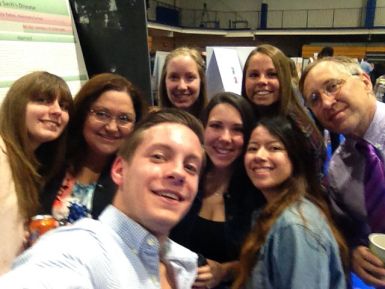 While the death of Dunbar has been particularly difficult for the science department, Harrison continues to turn this loss into a positive experience.
While the death of Dunbar has been particularly difficult for the science department, Harrison continues to turn this loss into a positive experience.
“I know for myself, I’m very happy to have known him,” Harrison said. “I feel blessed that I had the time with him I had, even though it was short. When I feel that life isn’t always going the way that I want or if I feel a little frustrated with things I do think about the times that I had with him and the positivity and the energy he brought to the department and to the university.”
Harrison added that one phrase of Dunbar’s that continues to linger in her heart is let’s just forge ahead.
“I feel that his mantra was really simple,” Harrison said. “Life is going to bring us ups and downs, but if you forge ahead and keep moving forward and take each day new as it comes, that things are going to work out.”
She hopes that this phrase will too linger with any person who had the honor of being a part of Dunbar’s life and even those who did not have the privilege of meeting him.
“I think that that’s something a student can kind of read in this article and maybe take from it and kinda learn from it as something to think about when life’s really getting them down,” Harrison said. “I try to make myself remember that and myself forge ahead and move through the difficult time.”


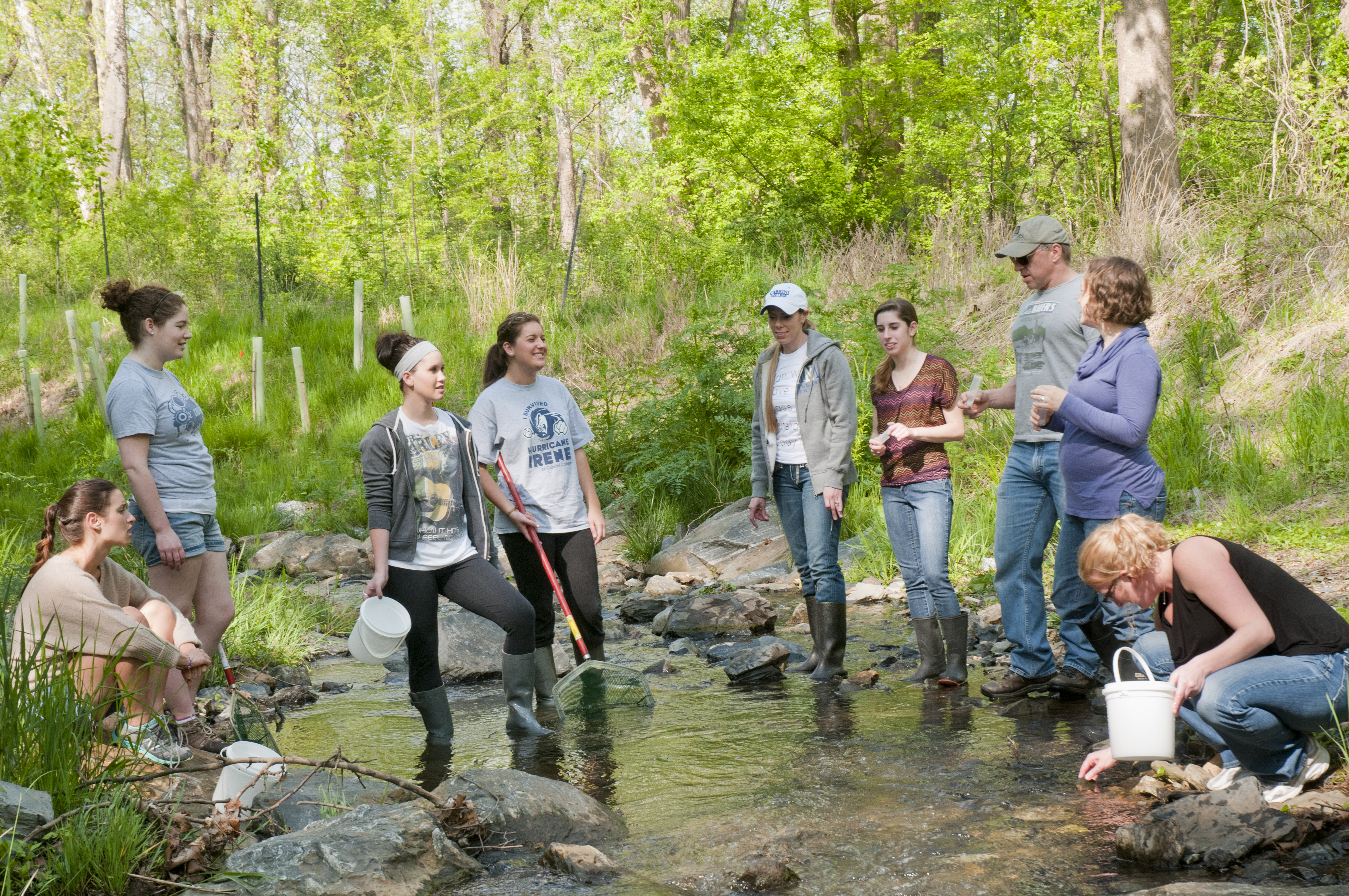
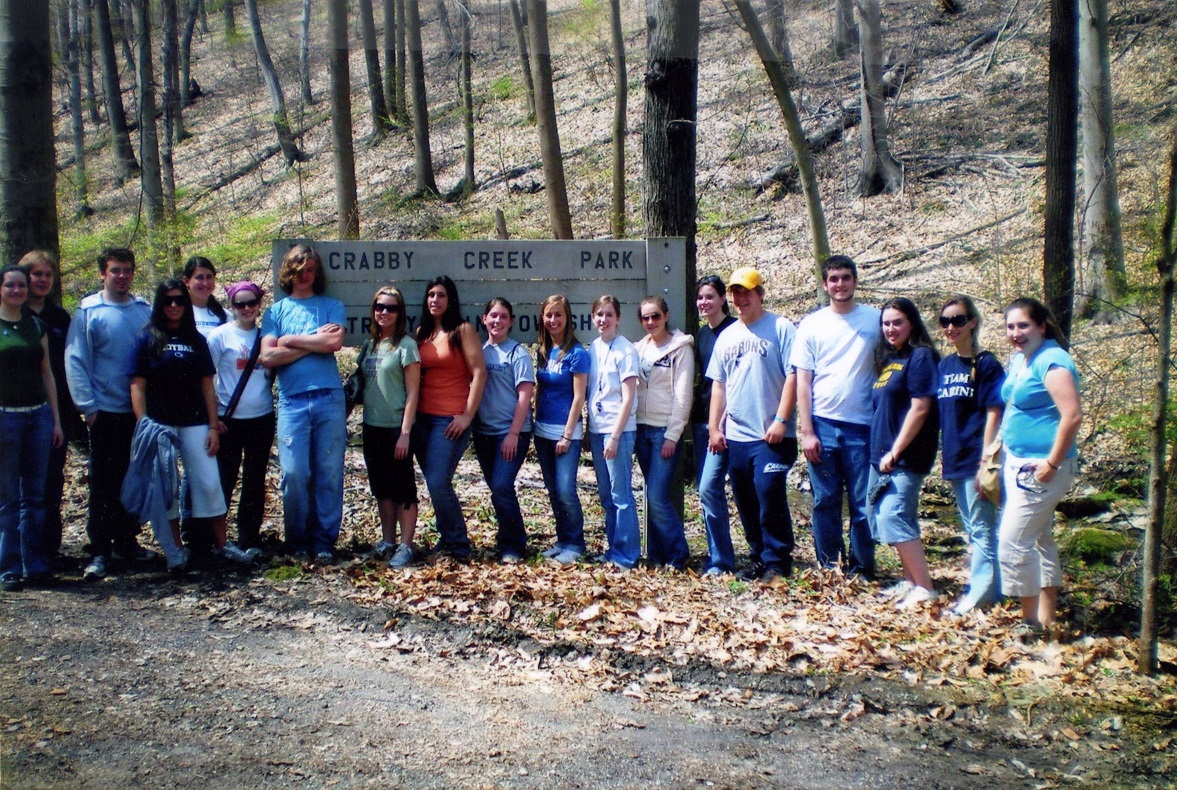
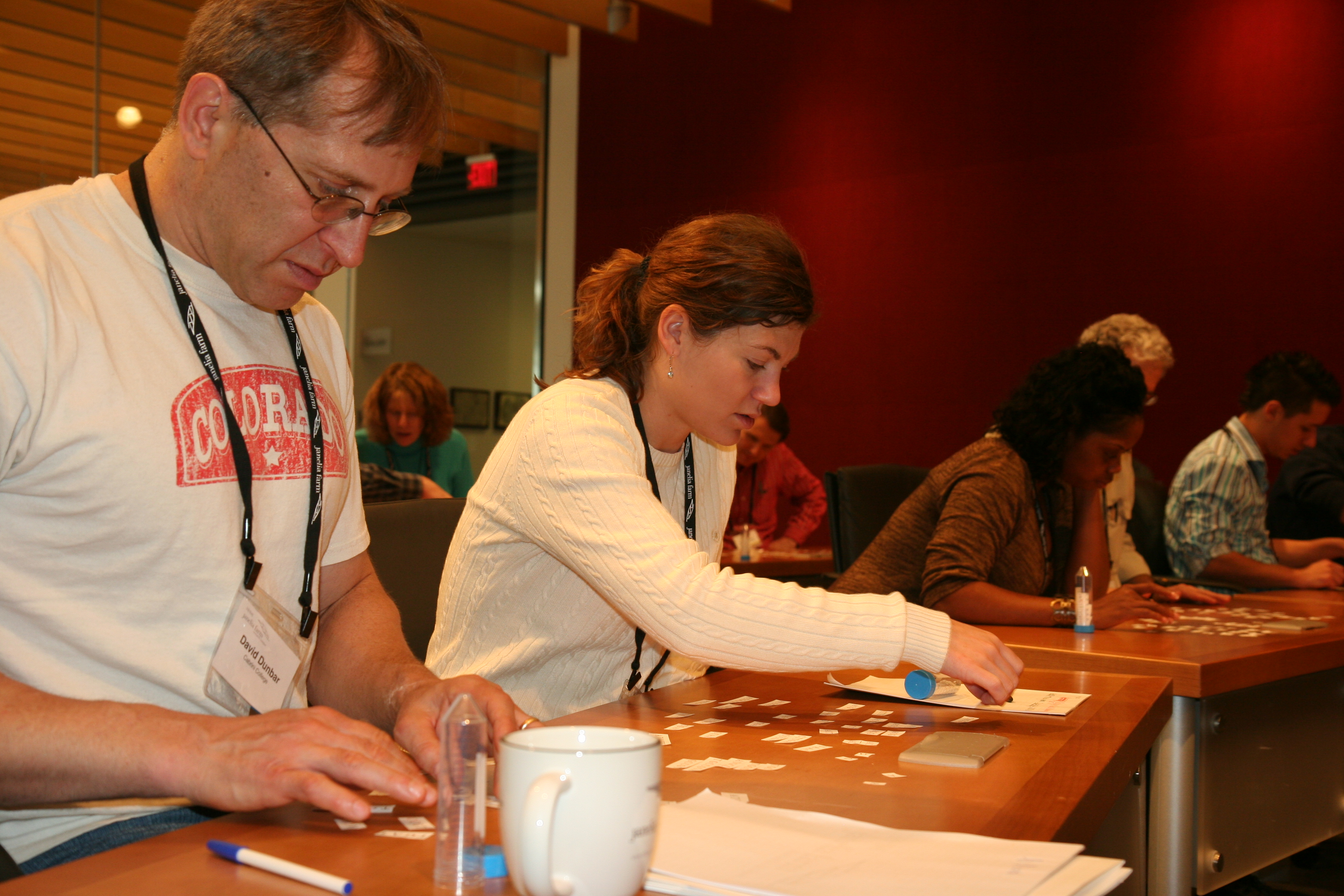
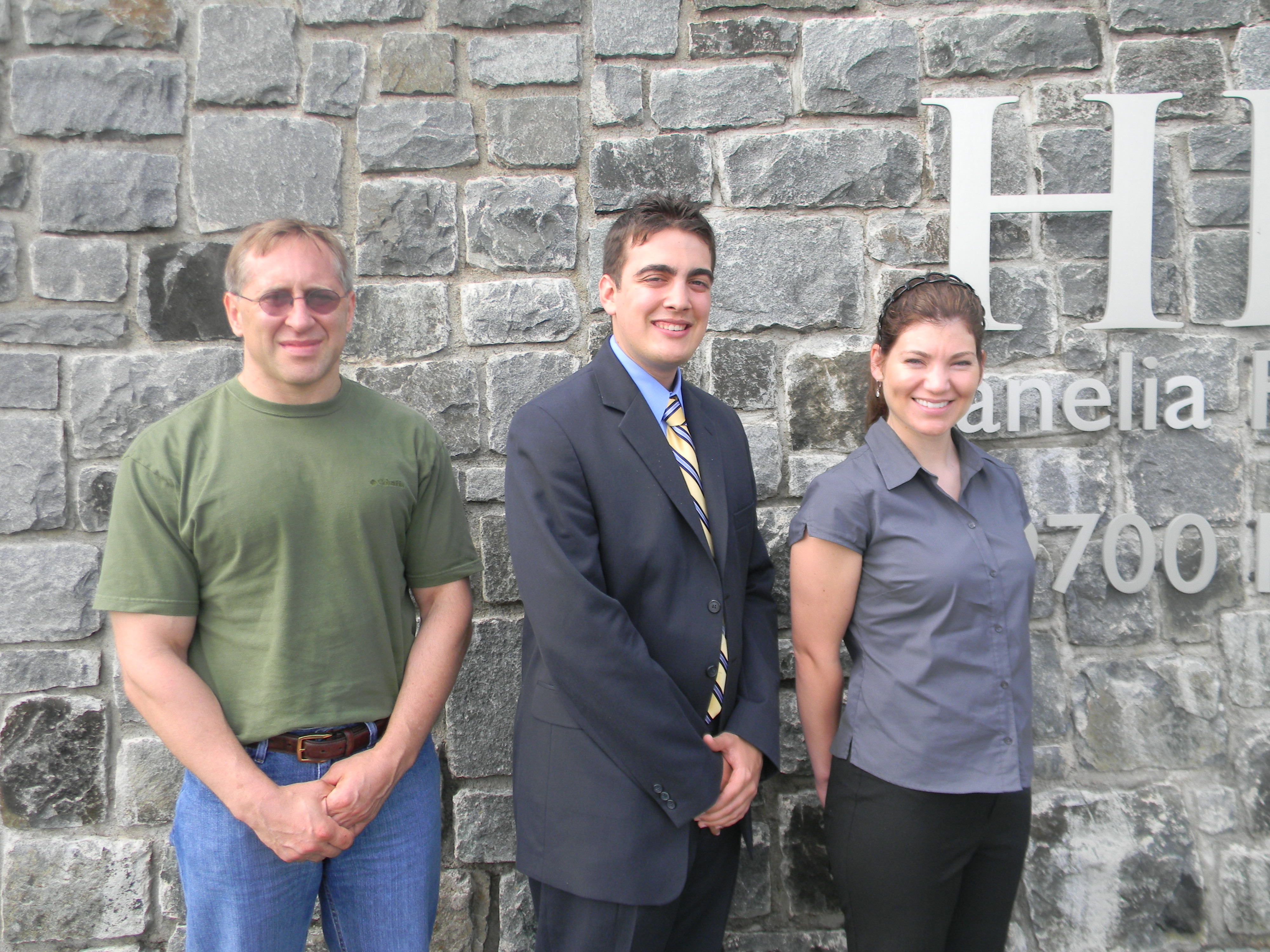


This was a very heartfelt piece about “Dr. D.” I will never forget that trip to HHMI. I’m looking forward to visiting the memorial the next time that I am in PA. Thank you.